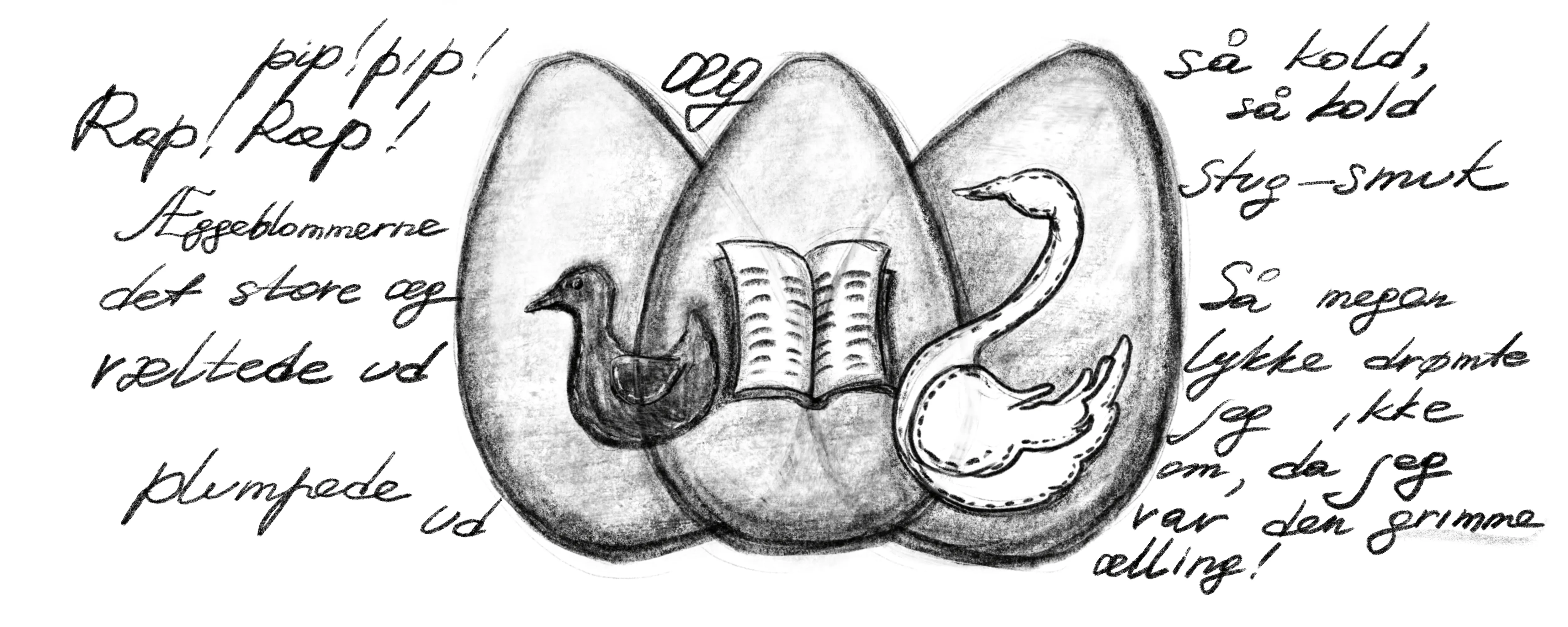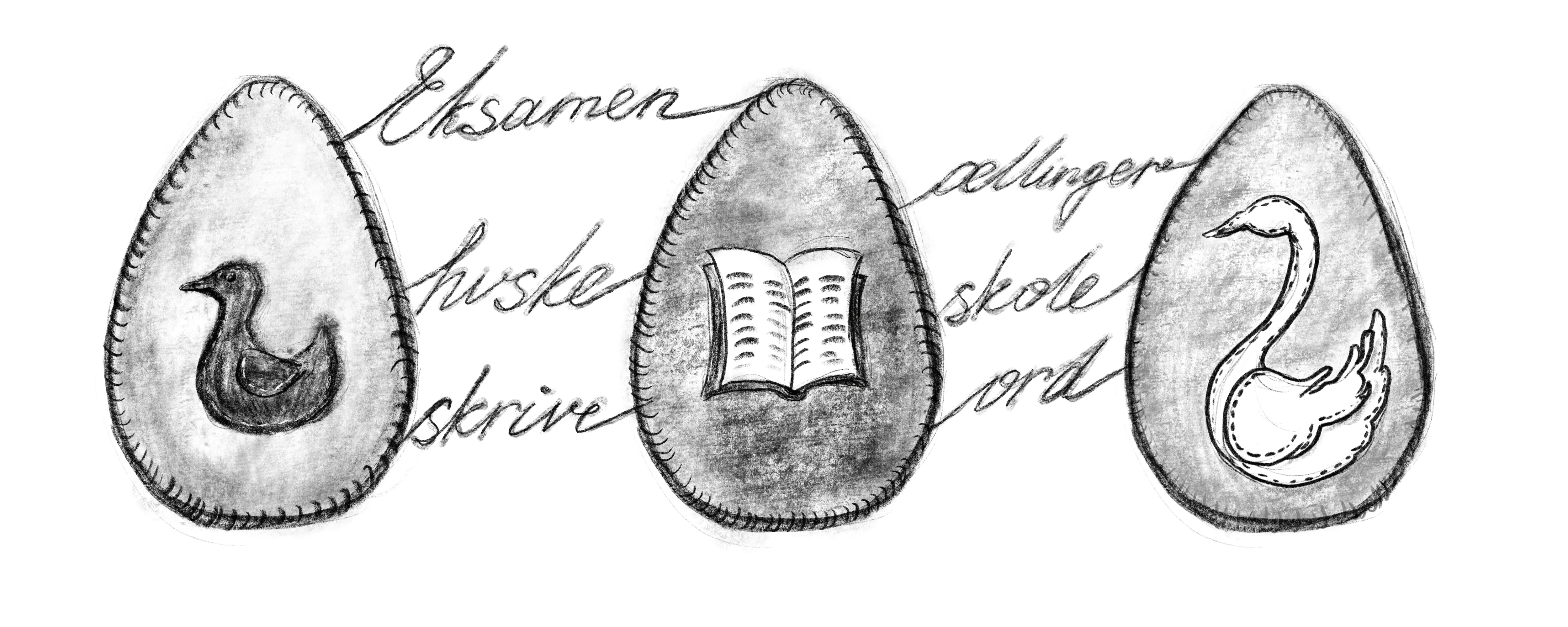
Den Grimme Ælling
Den Grimme Ælling
I enrolled in an extracurricular course focused on the fairy tales of Hans Christian Andersen. As a child, I was captivated by his stories and the cartoons they inspired. At the age of 7, I was thrilled to receive two books of his fairy tales as a birthday gift!
I never thought I’d read them in their original language!
During our extra classes, we read “Den Grimme Ælling” [The Ugly Duckling]. Initially, I wanted to refuse because reading aloud felt awkward and embarrassing. However, we're here to learn, even if it sounds wrong at first. In a way, we are like ugly ducklings, but here, no one pecks at us. Instead, we are supported. The school is helping us grow.
I made a small figure of a duckling and a swan as a gift for this extra class and our teacher—a reminder of our shared journey. Recently, I unexpectedly ran into the teacher (Her name is also Marianna, “Marianna the Second”) and noticed that she still carries our little duckling on her backpack!
I immediately remembered how she dramatically mimicked “plumpede ud” [plumped out] in class, and one student Kamal, who is also a doctor, rushed to help! Anoja shared stories about rescuing animals in Sri Lanka—perhaps they once saved an ugly duckling, too.
Our teachers raised us like little chicks. When we first arrived, we were just “ugly ducklings” from different nests.
It’s exciting because the exam is coming soon. It’s joyful because our first teacher (“Marianna the First”) will be the one testing us! She will see what we have learned. She remembers us as tiny, inexperienced newcomers.
We looked up at her like hungry little ones waiting for food. We opened our mouths together and repeated sounds and words. Danish words crawled around like little worms. Our first “singing” sounded more like a chirp. Though we are not beautiful swans, we are no longer helpless ducklings.

Idioten
Idioten
While learning a new language, something strange happened inside me: I learned a few simple words, and when I hear them, they sometimes crowd out the others in my sentences. It feels odd to mix them with words from another language. So I just cancel all my words—I simply stay silent. Maybe I write this to prove that my voice exists.
Sometimes I feel like the idiot in a Dostoevsky novel! A total idiot!
I freeze, forgetting words in every language at once, but I don’t feel condemned. I am my own harshest critic. Before, there was no gap between my thoughts, words, and reactions—I used to live at “supersonic speed.” But now, I constantly slow down. It takes time for the translation to reach me, for me to process it, to find my reaction, and turn it into words. Often, I just can’t find any words or reactions. Sometimes even my inner language is silent. I feel frozen and stuck. I feel stupid, that makes me sad.
Behind every person who speaks confidently in another language is someone who once was silent and had to overcome many internal and external barriers to feel secure enough to call a foreign place home.